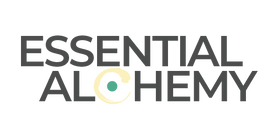When you get congested or start suffering from allergies, you might think that picking up any old nasal spray at your local pharmacy would be completely harmless. However, according to an alarming trend, if you choose the wrong provider or use this type of treatment improperly, you could end up hooked on your nasal spray. Essentially, nasal sprays and similar products can cause users to develop dependencies. This means that users get locked into a vicious cycle of relying on the nasal spray to alleviate their uncomfortable symptoms and help them breathe properly. In the following article, we describe the basics of this condition, which may be more common than you think, and describe how Clear Revive nasal spray avoids this problem.
How Nasal Sprays Create Dependence
Many nasal spray products are designed to be used only for a few days. However, since congestion, sneezing, runny nose, and similar symptoms can be persistent, many users end up treating themselves with nasal spray for a much longer duration. In fact, according to a 2014 study published in The Journal of Allergy and Clinical Immunology: In Practice, “the prevalence of intranasal decongestant overuse was high (49% [of the subjects in the study]), despite the fact that most of the patients (80%) were educated about the limit on duration of use.” Overusing nasal spray is quite common, which is unfortunate because this very behavior causes dependence.
According to WebMD, this is “known as the rebound phenomenon. You spray and spray, several times a day, but your stuffy nose seems to get worse.” This condition is technically called “rhinitis medicamentosa.” Basically, “these sprays contain chemicals that shrink congested blood vessels,” but “after a few days...the blood vessels don’t respond to the medication anymore.” This means that users “spray away, but [the] problem just gets worse,” instead of better. Sadly, WebMD notes that “this cycle can continue for months, years, and even decades.”
To make matters worse, as users’ noses become somewhat numb to their nasal sprays, Mayo Clinic explains that “[their] congestion also may worsen if [they] stop using the medication.” Dr. Mushlin explains this dynamic in more detail for Harvard Health Publishing: “the nasal membranes are pretty sensitive, and they can get used to chemicals applied to them,” which creates “a rebound phenomenon. When your nasal membranes don’t ‘see’ the oxymetazoline [the active drug in many nasal sprays], they swell up more than they ever did without it.” So, even as these treatments become less effective, users feel that they need to keep using their nasal spray because they’re so much more uncomfortable if they don’t.
The Difference Between Dependence and Addiction
While nasal spray dependence is a serious problem, and it’s medical gravity should not be diminished, it’s important to note that it is not an addiction. As Mayo Clinic notes, “some people may mistake this rebound effect [of nasal sprays] for addiction, but it isn’t. True addiction is a compulsive physiological need for and use of a habit-forming substance known to be physically, psychologically, or socially harmful. Over-the-counter nasal sprays don’t cause the physiological cravings that mark an addiction.”
While being dependent on nasal sprays is certainly something to be concerned about, you don’t need to worry about checking yourself into a rehabilitation facility. Your doctor can help you handle your nasal spray dependency (and we’ll provide some tips below, too).
Breaking the Nasal Spray Habit
If you’re experiencing a rebound effect, you can take certain steps to become less dependent and alleviate your congestion in a healthier way. Dr. Mushlin of Harvard Health Publishing explains: “the best way to break the cycle is to cut down on the medication in a gradual, methodical way. Some people even taper off one nostril at a time.” Slowly reducing your nasal spray use might be a bit uncomfortable at times, but it should help you get off of the medication. This is typically a workable solution, since “most people successfully wean themselves from ordinary nasal sprays just by steadily and consistently decreasing the amount they use.”
However, Dr. Mushlin notes that “if you end up being just too congested to breathe, you could ask your physician for a prescription for a nasal steroid spray. The steroid sprays sometimes help with ‘withdrawal.’” You can also use other techniques to make this process easier, such as humidifying your home, drinking hot teas, taking hot showers, propping yourself up on pillows when you sleep, and even using our non-dependence-forming Clear Revive nasal spray.
Why Clear Revive Doesn’t Cause Dependence
Clear Revive nasal spray offers many of the same benefits as similar medicated products, but without the drugs that can cause dependence, reduce the effectiveness of the spray, and ultimately cause inflammation. Our nasal spray is made from all-natural ingredients, such as saline, grapefruit seed extract, eucalyptus oil, and peppermint oil. Our nasal spray is safe to use on a prolonged, daily basis.



